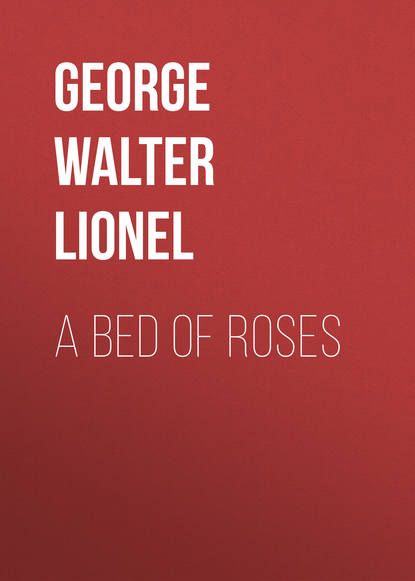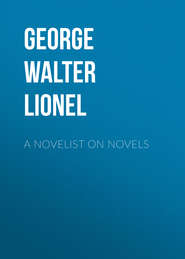По всем вопросам обращайтесь на: info@litportal.ru
(©) 2003-2024.
✖
A Bed of Roses
Настройки чтения
Размер шрифта
Высота строк
Поля
Buccaneering in the Edgware Road, even when it is bathed in the morning sun, soon falls flat in November. It came upon Victoria rather as a shock that her Indian clothing was rather thin. As her flying visits to town had only left in her mind a very hazy picture of Regent Street it was quite unconsciously that she entered the emporium opposite. A frigid young lady sacrificed for her benefit an abominable vicuna coat which, she said, fitted Victoria like a glove. Victoria paid the twenty seven and six with an admirable feeling of recklessness and left the shop reflecting that she looked the complete charwoman.
She turned into Hyde Park, where the gentle wind was sorrowfully driving the brown and broken leaves along the rough gravel. The thin tracery of the trees imaged itself on the road like a giant cobweb. Victoria looked for a moment towards the south where the massive buildings rise, towards the east where a cathedral thrusts into the sky a tower that suspiciously recalls waterworks. She drank in the cold air with a gusto that can be understood by none save those who have learned to live in the floating moisture of the plains. She felt young and, in the sunshine, with her cheeks gaining colour as the wind whipped them, she looked in her long black coat and broad brimmed straw hat, like a quakeress in love.
As she walked down towards the Achilles statue the early morning panorama of London unfolded itself before her un-understanding eyes. Girls hurried by with their satchels towards the typewriting rooms of the west; they stole a look at Victoria's face but quickly turned away from her clothes. Now and then spruce young clerks walking to the Tube slackened their pace to look twice into her grey eyes; one or two looked back, not so much in the hope of an adventure, for time could not be snatched for Venus herself on the way to the office, as to see whether they could carry away with them the flattery of having been noticed.
In a sense that first day in London was for Victoria a day of revelations. Having despatched a telegram to her brother to announce her arrival she felt that the day was hers. Ted had not troubled to meet her either at Southampton or Waterloo: it was not likely that he had followed the sightings of her ship. The next day being a Saturday, however, he would probably come up from the Bedfordshire school where he proffered Latin to an ungrateful generation.
Victoria's excursions to London had been so few that she had but the faintest idea of where she was to go. Knowing, however, that one cannot lose oneself in London, she walked aimlessly towards the east. It was a voyage of discovery. Piccadilly, bathed in the pale sun, revealed itself as a land where luxury flows like rivers of milk. Victoria, being a true woman, could not pass a shop. Thus her progress was slow, so slow that when she found herself between the lions of Trafalgar Square she began to realise that she wanted her lunch.
The problem of food is cruel for all women who desire more than a bun. They risk either inattention or over attention, and if they follow other women, they almost invariably discover the cheap and bad. Victoria hesitated for a moment on the steps of an oyster shop, as nervous in the presence of her first plunge into freedom as a novice at the side door of a pawnbroker. A man passed by her into the oyster shop, smoking a pipe. She felt she would never dare to sit in a room where strange men smoked pipes. Thus she stood for a moment forlorn on the pavement, until a memory of the only decent grill in town, according to Bobby, passed through her mind.
A policeman sent her by bus to the New Gaiety, patronised by Bobby and his cronies. As Victoria went down the interminable underground staircase, and especially as she entered the enormous room where paper, carpets, and plate always seem new, her courage almost failed her. Indeed she looked round anxiously, half hoping that the anonymous Bobby might be revisiting his old haunts. But she was quite alone, and it was only by reminding herself that she must always be alone at meals now that she coerced herself into sitting down. She got through her meal with expedition. She felt frightfully small; the waiters were painfully courteous; a man laid aside his orange coloured newspaper, and embarrassed her with frequent side glances. She braced herself up however. 'I am training,' was her uppermost thought. She then wondered whether she ought to have come to the New Gaiety at all. Fortunately it was only at the very end of her lunch that Victoria realised she was the only woman sitting alone. After this discovery her nerve failed her. She got up hurriedly, and, in her confusion, omitted to tip the waiter. At the desk the last stone was heaped on the cairn of her discomfiture when the cashier politely returned to her a quarter rupee which she had given her thinking it was a sixpence.
With a sigh of satisfaction Victoria resumed her walk through London. She was a little tired already but she could think of nothing to do, nowhere to go to. She did not want to return to Curran's to sit in her box-like room, or to look at the two spinsters availing themselves of their holiday in town to play patience in the conservatory.
All the afternoon, therefore, Victoria saw the sights. Covent Garden repelled her by the massiveness of its food suggestion, and especially by the choking dirt of its lanes. After Covent Garden, Savoy court yard and its announcements of intellectual plays by unknown women. Then once more, drawn by its spaciousness guessed at through Spring Gardens, Victoria walked into Saint James's Park. She rested awhile upon a seat, watching the waterfowl strut and plume themselves, the pelicans flounder heavily in the mud. She was tired. The sun was setting early. The magic slowly faded from London; Buckingham Palace lost the fictitious grace that it has when set in a blue sky. Victoria shivered a little. She felt tired. She did not know where to go. She was alone. On the seat nearest to hers two lovers sat together, hand in hand. The man's face was almost hidden by his cap and by the blue puffs of his pipe; the girl's was averted towards the ground where, with the ferule of her umbrella, she lazily drew signs. There was no bitterness in this sight for Victoria. Her romance had come and gone so long ago that she looked quite casually at these wanderers in Arcadia. She only knew that she was alone and cold.
Victoria got up and walked out of the park. It was darkening, and little by little the lights of London were springing into life. By dint of many questionings she managed to regain Oxford Street, that spinal column of London without which the stranger would be lost. Then her course was easy, and it was with a peculiar feeling of luxuriousness that she resigned herself to the motor bus that jolted and shook her tired body until she reached the Arch. More slowly, and with diminished optimism, she found her way up Edgware Road, where night was now falling. The emporium was dazzling with lights. Alone the public house rivalled it and thrust its glare through the settling mist. Victoria closed the door of Curran's. At once she re-entered its atmosphere; into the warm air rose the three smells of three legs of mutton.
CHAPTER V
'Mr Wren, ma'am.'
Victoria turned quickly to Carlotta. The girl's face was obtrusively demure. Some years at Curran's had not dulled in her the interest that any woman subtly feels in the meeting of the sexes.
'Ask him to come in here, Carlotta,' said Victoria. 'We shan't be disturbed, shall we?'
'Oh no! ma'am,' said Carlotta, with increasing demureness. 'There is nobody, nobody. I will show the young gentleman in.'
Victoria walked to the looking-glass which shyly peeped out from the back of the monumental sideboard. She re-arranged her hair and hurriedly flicked some dust from the corners of her eyes. All this for Edward, but she had not seen him for three years. As she turned round she was confronted by her brother who had gently stolen into the dining-room. Edward's every movement was unobtrusive. He put one arm round her and kissed her cheek.
'How are you, Victoria?' he said, looking her in the eyes.
'Oh, I'm alright, Ted. I'm so glad to see you.' She was genuinely glad; it was so good to have belongings once again.
'Did you have a good passage?' asked Edward.
'Pretty good until we got to Ushant and then it did blow. I was glad to get home.'
'I'm very glad to see you,' said Edward, 'very glad.' His eyes fixed on the sideboard as if he were mesmerised by the cruets. Victoria looked at him critically. Three years had not made on him the smallest impression. He was at twenty-eight what he had been at twenty-five or for the matter of that at eighteen. He was a tall slim figure with narrow pointed shoulders and a slightly bowed back. His face was pale without being unhealthy. There was nothing in his countenance to arouse any particular interest, for he had those average features that commit no man either to coarseness or to intellectuality. He showed no trace of the massiveness of his sister's chin; his mouth too was looser and hung a little open. Alone his eyes, richly grey, recalled his relationship. Straggly fair hair fell across the left side of his forehead. He peered through silver rimmed spectacles as he nervously worried his watch chain with both hands. Every movement exposed the sharpness of his knees through his worn trousers.
'Ted,' said Victoria, breaking in upon the silence, 'it was kind of you to come up at once.'
'Of course I'd come up at once. I couldn't leave you here alone. It must be a big change after the sunshine.'
'Yes,' said Victoria slowly, 'it is a big change. Not only the sunshine. Other things, you know.'
Edward's hands played still more nervously with his watch chain. He had not heard much of the manner of Fulton's death. Victoria's serious face encouraged him to believe that she might harrow him with details, weep even. He feared any expression of feeling, not because he was hard but because it was so difficult to know what to say. He was neither hard nor soft; he was a schoolmaster and could deal readily enough with the pangs of Andromeda but what should he say to a live woman, his sister too?
'I understand – I – you see, it's quite awful about Dick – ' he stopped, lost, groping for the proper sentiment.
'Ted,' said Victoria, 'don't condole with me. I don't want to be unkind – if you knew everything – But there, I'd rather not tell you; poor Dicky 's dead and I suppose it's wrong, but I can't be sorry.'
Edward looked at her with some disapproval. The marriage had not been a success, he knew that much, but she ought not to speak like that. He felt he ought to reprove her, but the difficulty of finding words stopped him.
'Have you made any plans?' he asked in his embarrassment, thus blundering into the subject he had intended to lead up to with infinite tact.
'Plans?' said Victoria. 'Well, not exactly. Of course I shall have to work; I thought you might help me perhaps.'
Edward looked at her again uneasily. She had sat down in an armchair by the side of the fire with her back to the light. In the penumbra her eyes came out like dark pools. A curl rippled over one of her ears. She looked so self-possessed that his embarrassment increased.
'Will you have to work?' he asked. The idea of his sister working filled him with vague annoyance.
'I don't quite see how I can help it,' said Victoria smiling. 'You see, I've got nothing, absolutely nothing. When I've spent the thirty pounds or so I've got, I must either earn my own living or go into the workhouse.' She spoke lightly, but she was conscious of a peculiar sinking.
'I thought you might come back with me,' said Edward, '.. and stay with me a little.. and look round.'
'Ted, it's awfully kind of you, but I'm not going to let you saddle yourself with me. I can't be your housekeeper; oh! it would never do. And don't you think I am more likely to get something to do here than down in Bedfordshire?'
'I do want you to come back with me,' said Edward hesitatingly. 'I don't think you ought to be alone here. And perhaps I could find you something in a family at Cray or thereabouts. I could ask the vicar.'
Victoria shuddered. It had never struck her that employment might be difficult to find or uncongenial when one found it. The words 'vicar' and 'Cray' suggested something like domestic service without its rights, gentility without its privileges.
'Ted,' she said gravely, 'you're awfully good to me, but I'd rather stay here. I'm sure I could find something to do.' Edward's thoughts naturally came back to his own profession.
'I'll ask the Head,' he said with the first flash of animation he had shown since he entered the room. To ask the Head was to go to the source of all knowledge. 'Perhaps he knows a school. Of course your French is pretty good, isn't it?'
'Ted, Ted, you do forget things,' said Victoria, laughing. 'Don't you remember the mater insisting on my taking German because so few girls did? Why, it was the only original thing she ever did in her life, poor dear!'
'But nobody wants German, for girls that is,' replied Edward miserably.
'Very well then,' said Victoria, 'I won't teach; that's all. I must do something else.'
Edward walked up and down nervously, pushing back his thin fair hair with one hand, and with the other nervously tugging at his watch chain.
'Don't worry yourself, Ted,' said Victoria. 'Something will turn up. Besides there's no hurry. Why, I can live two or three months on my money, can't I?'
'I suppose you can,' said Edward gloomily, 'but what will you do afterwards?'
'Earn some more,' said Victoria. 'Now Ted, you haven't seen me for three years. Don't let us worry. Think things over when you get back to Cray and write to me. You won't go back until to-morrow, will you?'
'I'm sorry,' said Edward, 'but I didn't think you'd be back this week. I shall be in charge to-morrow. Why don't you come down?'
'Ted, Ted, how can you suggest that I should spend my poor little fortune in railway fares! Well, if you can't stay, you can't. But I'll tell you what you can do. I can't go on paying two and a half guineas a week here; I must get some rooms. You lived here when you taught at that school in the city, didn't you? Well then, you must know all about it: we'll go house-hunting.'
Edward looked at her dubiously. He disliked the idea of Victoria in rooms almost as much as Victoria at Curran's. It offended some vague notions of propriety. However her suggestion would give him time to think. Perhaps she was right.
'Of course, I'll be glad to help,' he said, 'I don't know much about it; I used to live in Gower Street.' A faint flush of reminiscent excitement rose to his cheeks. Gower Street, by the side of Cray and Lympton, had been almost adventurous.







